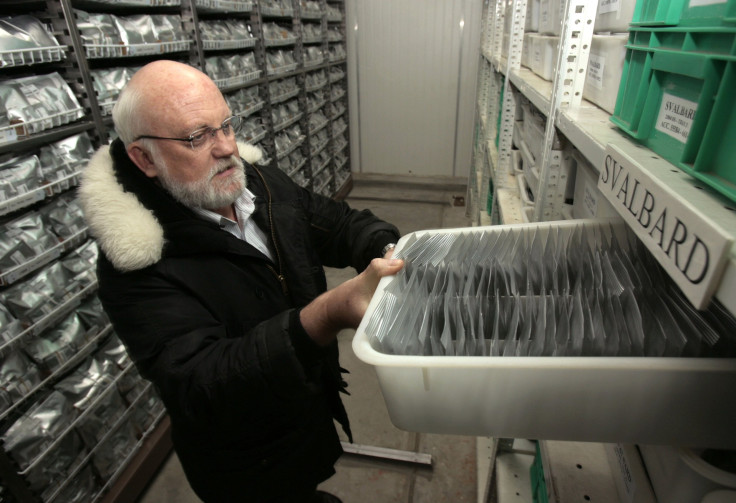Middle East researchers make 1st withdrawal from Doomsday seed vault due to lack of access to Syrian cold storage facility

Curious minds would likely see a link between the reports on Wednesday that Middle Eastern researchers are making the first ever withdrawal from the Doomsday seed vault at the Svalbard archipelago and Sunday’s blood moon and lunar eclipse.
The reason behind the withdrawal of drought-resistant crop seeds such as wheat, barley and grasses from the Arctic value – found on an island between Norway and the North Pole – is inaccessibility of the cold storage facility in Aleppo, Syria. Although the seeds the scientists need are in the plant, they could not reach it because of the damage to the surrounding buildings in the Syrian city caused by the prolonged civil war, reports Sciencealert.
The Aleppo-based International Centre for Agricultural Research in Dry Areas, or ICARDA, made the withdrawal request because of the lack of access to the seeds. ICARDA, which moved in 2012 to Beirut in Lebanon to escape the conflict, asked to withdraw 130 of 325 seed boxes it deposited to the Doomsday vault – built in 2008 – before the Syrian civil war erupted.
Crop Trust, which runs the vault that would remain locked and frozen for 200 years even without electricity, said it would carry out ICARDA’s request as soon as paperwork needed is completed. The Svalbard Global Seed Vault – also called Doomsday vault - has over 860,000 seed samples from almost every country on Earth. With ICARDA’s request, the samples would go down by 116,000 to 744,000.
The vault is isolated from earthquakes, heat waves and human menace, with its contents lasting 1,000 years. The Washington Post calls it a sort of Noah’s Ark for plants that was built to withstand adverse weather conditions, war, crop disease, climate change and asteroid hits which could wipe out species from the rest of the planet.
However, because of annual deposits to the vault, it does not run the risk of running out of seeds in spite of ICARDA’s historical withdrawal.
The Syrian conflict is one of the recent global events cited by Christian author Robert Rite that form part of the five prophetic signs of approaching turbulent times for mankind. One the omen’s, he says, is Sunday’s lunar event.
Contact the writer at feedback@ibtimes.com.au or tell us what you think below





















